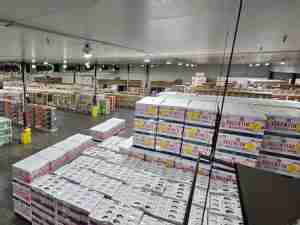dexFreight, providers of a decentralized, blockchain-based logistics platform, today launched the dexFreight Early Adopters Program for U.S. shippers, carriers, brokers, and forwarders.
“The dexFreight platform built on blockchain technology allows supply chain stakeholders to transact and collaborate more efficiently, transparently and securely,” said Rajat Rajbhandari, CEO and co-founder of dexFreight. “Through our Early Adopters Program, we will be using the real-world expertise of logistics stakeholders to evaluate new and advanced features of our platform that will be launched in the near future. We don’t want to develop in a vacuum, and we believe the dialogue with and feedback from early adopters is vital in creating a platform that helps the entire logistics community.”
The dexFreight Early Adopters Program is open to U.S.-based companies. By joining the Early Adopters Program, companies will have exclusive access to early release versions of the dexFreight platform. As members of the Early Adopters community, they will have the opportunity to interact with dexFreight’s development and product teams.
Early Adopters Program participants will have free access to the platform’s basic features for three months and to advanced features at no charge when they first become available, and then at a discounted rate. They will receive early notifications about new features before they are offered to all platform users.
Basic features of the dexFreight platform include TMS/FMS integration, load and capacity matching, safety data, rate negotiation, accessorial selection, P&D scheduling, shipment tracking, navigation and communication, and payments built on blockchain technology from the ground up.
Plans for the platform include escrow services, tokenized invoices, rate forecasting, on demand warehouse, load chaining, fleet optimization, bid preparation and risk prediction features, as well as third party apps.
In October 2018, dexFreight completed its first blockchain-based shipment using smart contracts. The platform, an ecosystem of open source protocols, blockchain and machine learning technologies, allowed the shipper and carrier to directly connect, negotiate rates, and schedule pickup and delivery.







